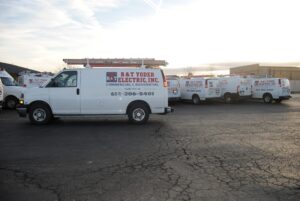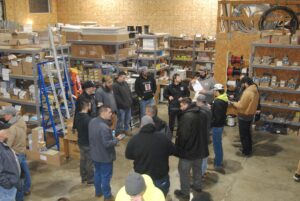
If you’re facing pool electrical issues, start by inspecting for faulty wiring which can cause shorts or malfunctions in pumps and heaters. Proper grounding is crucial to prevent shocks. Regular maintenance is key to safety and functionality, ensuring you catch issues early. Look out for flickering lights, tripping breakers, or unusual sounds as warning signs. You can troubleshoot by visually checking, testing with a multimeter, and verifying circuit protection. When in doubt, call a licensed electrician specialized in pool systems to prevent accidents. Understanding these basics is essential for pool electrical safety and performance.
Common Pool Electrical Problems
Commonly, pool electrical problems arise due to inadequate maintenance and improper installation practices. One prevalent issue is faulty wiring, often caused by corrosion or wear over time. This can lead to electrical shorts, power outages, or even pose a risk of electric shock. Another common problem is the malfunction of pool pumps and heaters due to electrical issues. These components require a stable electrical supply to function correctly, and any disruptions can result in their failure.
Furthermore, improper grounding of pool equipment can lead to safety hazards, as it increases the risk of electrical shock. Inadequate bonding, which ensures that all pool components are at the same voltage potential, is another frequent concern. Without proper bonding, metal components such as ladders or handrails can become electrified, posing a danger to swimmers.
Regular inspection and maintenance of pool electrical systems are crucial to prevent these issues. By ensuring that wiring is intact, equipment is functioning correctly, and proper grounding and bonding are in place, you can minimize the risk of electrical hazards and enjoy a safe swimming environment.
Importance of Regular Pool Maintenance
Regular pool maintenance is essential to ensure the safety and functionality of your pool’s electrical systems. By maintaining your pool regularly, you can prevent potential electrical hazards and ensure that all components are working efficiently. Regular maintenance includes tasks such as inspecting and cleaning electrical connections, checking for any signs of wear or damage in wiring, and testing the functionality of electrical equipment like pool pumps and lighting fixtures.
Proper maintenance helps in identifying and addressing minor issues before they escalate into major problems, saving you time and money in the long run. It also ensures that your pool operates at peak performance, extending the lifespan of your electrical systems. Neglecting regular maintenance can lead to malfunctions, which may pose safety risks to swimmers and result in costly repairs. Therefore, it is crucial to follow a routine maintenance schedule and address any electrical concerns promptly to keep your pool operating safely and efficiently.
Signs of Pool Electrical Issues
If you notice flickering lights, persistent tripping of circuit breakers, or unusual buzzing sounds near your pool area, these could be indications of potential pool electrical issues. Flickering lights could signify loose wiring or overloaded circuits, which may lead to safety hazards. Persistent tripping of circuit breakers might indicate a short circuit or ground fault in the pool’s electrical system. This can disrupt the power supply to your pool equipment and pose a risk of electrical shock. Unusual buzzing sounds near the pool area could be a sign of faulty wiring or a malfunctioning electrical component, requiring immediate attention to prevent further damage.
Additionally, if you observe discolored or warm electrical outlets, visible wear on electrical cables, or a persistent burning smell, these are further signs of electrical problems in your pool area. It is crucial to address these issues promptly to ensure the safety of swimmers and prevent more extensive damage to your pool’s electrical system.
DIY Pool Electrical Troubleshooting Tips
For effective troubleshooting of pool electrical issues, begin by conducting a thorough visual inspection of all electrical components. Inspect the pool pump, lights, heaters, and any other electrical devices for signs of damage or wear. Check for loose connections, frayed wires, or water intrusion that could be causing the problem. Make sure to turn off all power to the pool before starting any inspection or repair work to ensure safety.
Next, test the electrical components using a multimeter to check for continuity and proper voltage levels. This will help identify any faulty components that may need replacement. Additionally, check the circuit breakers and GFCI outlets to ensure they are functioning correctly and providing the necessary protection.
If you encounter any issues that you are not comfortable fixing yourself or if the problem persists after troubleshooting, it is recommended to seek the assistance of a professional electrician to avoid any safety hazards. Remember, safety should always be the top priority when dealing with pool electrical systems.
Hiring a Professional Electrician for Pool Repairs
When seeking professional assistance for pool electrical repairs, ensure to hire a licensed electrician with experience in handling pool-specific electrical systems. Pool electrical systems require specialized knowledge due to the combination of water and electricity, making safety a top priority. A qualified electrician will have the expertise to troubleshoot and repair issues such as malfunctioning pool lights, faulty pumps, or inadequate bonding and grounding.
A professional electrician will conduct a thorough inspection of your pool’s electrical components to identify any potential hazards or code violations. They will be equipped to make necessary repairs, upgrades, or replacements to ensure your pool meets safety standards and functions properly. Additionally, hiring a licensed electrician for pool repairs can help prevent accidents, electrical fires, or electrocution risks associated with faulty wiring or equipment.










